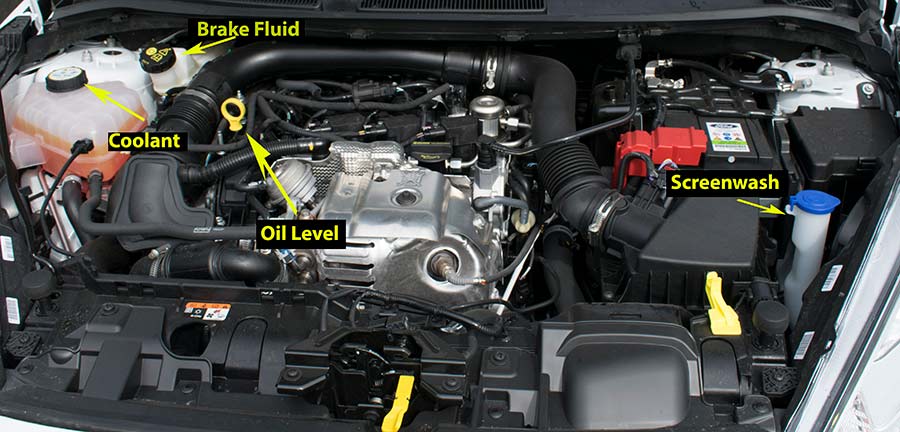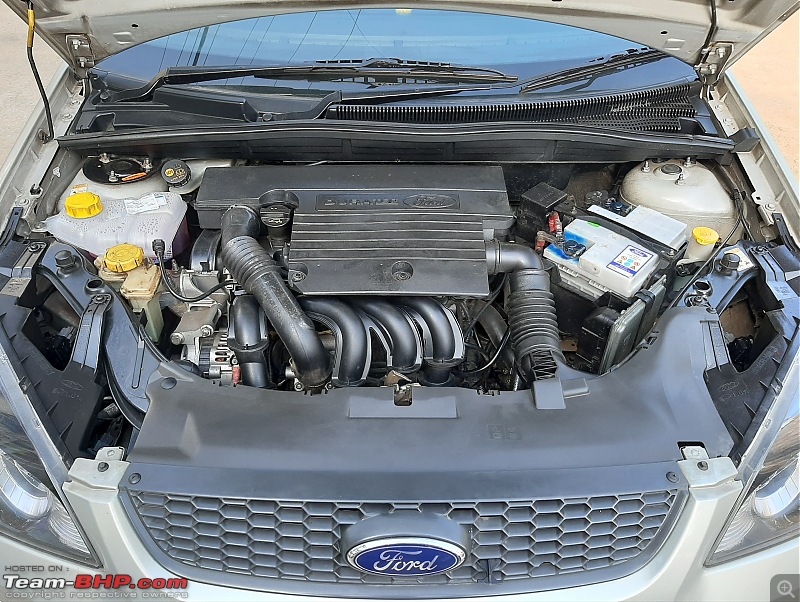How a Ford Fiesta Engine Tune-Up Can Improve Your Car’s Performance
How a Ford Fiesta Engine Tune-Up Can Improve Your Car’s Performance
Blog Article
The Future of Engines: Technologies Driving Lasting Power Solutions
As the vehicle sector navigates the crucial transition in the direction of sustainability, the future of engines is significantly specified by groundbreaking innovations. Electric engine advancements, together with promising growths in hydrogen gas cells and biofuels, are reshaping the landscape of power solutions. The appearance of hybrid systems even more complicates this evolution, presenting both obstacles and chances to lower exhausts properly. Coupled with the integration of expert system in engine layout, these technological strides raise crucial concerns about their long-term viability and influence on typical paradigms. What might this mean for the industry and consumers alike?
Electric Engine Dope
The advancement of electrical engine advancements signifies a crucial change in the automobile and aerospace sectors, driven by the urgent requirement for sustainable choices to nonrenewable fuel sources. This transition is identified by substantial innovations in battery innovation, power electronics, and electrical motor style, which jointly boost the performance and efficiency of electrical engines.
Current advancements have led to the production of lighter, much more energy-dense batteries, such as lithium-silicon and solid-state batteries, which assure longer varieties and shorter charging times. In addition, renovations in electrical motor effectiveness, such as using irreversible magnets and progressed cooling systems, allow electrical engines to run efficiently under differing conditions. These improvements not only improve lorry efficiency however likewise add to a decrease in total energy intake.
Moreover, the assimilation of innovative software program formulas has optimized energy management in electric cars, enabling for regenerative braking and anticipating billing techniques. As producers progressively embrace electric propulsion, the vehicle and aerospace fields are experiencing a paradigm shift in the direction of greener innovations. This development not only satisfies regulatory needs however also aligns with customer preferences for eco friendly transportation solutions, solidifying electric engines as a cornerstone of future lasting flexibility.
Improvements in Biofuels
As the automotive and aerospace sectors progressively prioritize lasting energy resources, advancements in biofuels arise as a complementary service to electric engines. Biofuels, derived from natural products such as plants, waste, and algae, present an ingenious method for reducing greenhouse gas discharges and dependence on nonrenewable fuel sources.
Recent research has concentrated on improving the performance and sustainability of biofuel production. Second-generation biofuels make use of non-food feedstocks, lessening competition with food supply and minimizing environmental influence. In addition, advancements in synthetic biology have actually allowed the design of microbes to create biofuels better, causing higher yields and lower manufacturing expenses.
In addition, the development of drop-in biofuels enables smooth combination into existing framework, making it possible for a smoother shift for industries generally depending on nonrenewable fuel sources. ford fiesta engine. These gas can be used in current engines without alterations, promoting their adoption across various markets
Investments in biofuel innovation, in addition to helpful policies, are crucial to drive advancement and scalability. As the international community seeks to deal with climate adjustment, biofuels provide a practical, immediate option that straightens with the overarching objective of sustainability in transportation and aviation.
Hydrogen Gas Cell Modern Technology
A growing number of companies and scientists are discovering hydrogen fuel cell innovation as a practical alternative to traditional source of power in transport and power systems. This innovation converts chemical power from hydrogen right into electrical energy via an electrochemical response, with water as the only by-product, making it an ecologically friendly option.
The core of hydrogen gas cells is the gas cell stack, where hydrogen molecules are split into protons and electrons. The circulation of electrons creates electrical power, while protons relocate via a membrane to combine with oxygen from the air, forming water. This process leads to high performance and low exhausts, placing hydrogen fuel cells as an essential player in the transition to lasting energy.
Considerable developments have actually been made in improving the resilience and effectiveness of gas cells, alongside lowering expenses via innovative manufacturing techniques. Moreover, the advancement of hydrogen manufacturing methods, such as electrolysis powered by renewable energy sources, enhances the sustainability of the general system. As infrastructure for hydrogen refueling expands and production techniques end up being much more efficient, hydrogen fuel cell technology holds terrific assurance for decarbonizing different industries, including sturdy transportation and stationary power generation.
Crossbreed Systems and Their Effect
Hybrid systems represent a considerable advancement in lasting engine innovation, merging standard inner combustion engines with electrical propulsion to enhance energy efficiency and minimize discharges (ford fiesta engine). This twin technique permits lorries to use both power sources, enabling higher flexibility in energy intake and reducing dependence on nonrenewable fuel sources

In enhancement to environmental benefits, hybrid systems offer consumers a practical change in the direction of completely electric cars. They minimize variety stress and anxiety by combining the benefit of gas with the benefits of electrical propulsion, making them an attractive alternative for a bigger audience.
The Function of AI in Engine Design
Leveraging sophisticated algorithms and equipment discovering techniques, the auto sector is significantly integrating expert system (AI) right into engine style processes. AI boosts the efficiency and efficiency of style by evaluating vast datasets to determine optimal configurations and efficiency criteria. This capability enables engineers to simulate different operating conditions and anticipate engine behavior under numerous circumstances, get redirected here significantly lowering the moment and cost related to typical prototyping techniques.
Moreover, AI facilitates the development of advanced materials and combustion procedures customized for sustainability. By optimizing gas efficiency read here and reducing discharges, AI-driven styles line up with international campaigns focused on minimizing the carbon impact of automobile engines. Device discovering formulas can likewise forecast maintenance needs, leading to enhanced dependability and long life of engine components.
Moreover, AI contributes in the assimilation of electrification innovations, such as crossbreed systems, where it can enhance battery administration and energy recuperation processes. As the market moves in the direction of more sustainable power remedies, the role of AI in engine design comes to be significantly essential, driving innovation and boosting the efficiency of future engines. Eventually, the cooperation between AI and engine design heralds a new age of smarter, cleaner, and more reliable automotive innovations.

Conclusion
In verdict, the future of engines is being shaped by a convergence of ingenious modern technologies that prioritize sustainability. Electric engine improvements, biofuel advancements, hydrogen gas cells, and hybrid systems jointly add to a substantial decrease in exhausts and ecological effect.
Electric engine innovations, together with promising growths in hydrogen fuel cells and biofuels, are reshaping the landscape of power solutions. In addition, renovations in electric motor effectiveness, such as the usage of long-term magnets and progressed cooling down systems, make it possible for electric engines to run efficiently under differing conditions. By maximizing gas efficiency and minimizing emissions, AI-driven layouts straighten with global campaigns aimed at minimizing the carbon footprint of automotive engines. As the sector moves towards more sustainable power services, the function of AI look here in engine design ends up being significantly crucial, driving advancement and enhancing the efficiency of future engines. Electric engine advancements, biofuel developments, hydrogen fuel cells, and crossbreed systems jointly add to a considerable decrease in discharges and ecological influence.
Report this page